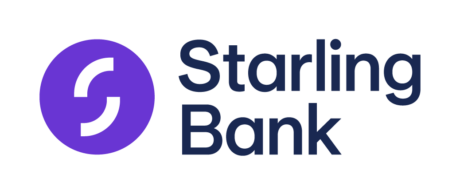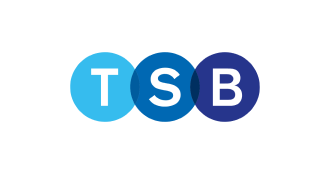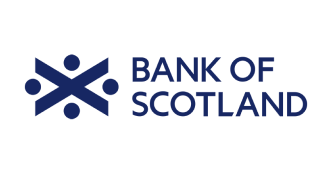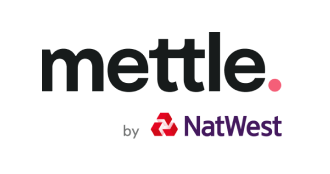Many or all of the products and brands we review are from our partners who compensate us. This may influence which products we write about and the product we choose in our ‘promotions’. However it doesn’t influence our reviews or ratings. Our opinions are our own. Read more on our methodology, ratings and what our use of the word ‘Best’ means.
A business bank account is a current account designed for businesses, including sole traders, limited companies, partnerships and not-for-profit organisations – though some banks don’t cover all types of businesses.
There are many different accounts available, so it is important to pick the best business bank account for your needs. Finding the best business bank account for you doesn’t have to be difficult.
We’ve picked our top 10 business bank accounts based on our own research of the market as well as what business owners say are the most important criteria when searching for a business account. That includes monthly fees, easy account access and protection through the Financial Services Compensation Scheme (FSCS).
Virgin M Account for Business
For businesses with a turnover of less than £1million, the M Account for Business gives you free day-to-day online business banking for all your everyday needs. Open an account today and get 3 months of QuickBooks or Xero fee-free. T&Cs apply.
Editor’s Picks
Business Bank Accounts |
Editors Pick |
UK Card Purchase Fees |
UK Bank Transfer Fees |
Monthly Fee |
|
|---|---|---|---|---|---|
Virgin Money M Account for Business |
Overall
|
Free
|
From free
|
Free
|
|
Monzo Lite Business Account |
Online only
|
Free
|
Free
|
Free
|
|
Mettle Business Bank Account |
Transactions
|
Free
|
Free
|
Free
|
|
Revolut Free Business Account |
International
|
Free
|
5 free per month
|
Free
|
The editor’s picks listed above are based on NerdWallet’s editorial team’s analysis of all the business bank accounts reviewed on our site. The team has assessed over 20 business bank accounts from high street and digital-only banks to evaluate which brands offer standout features that may be important for your business.
Editor’s picks are our own opinion and don’t constitute advice, recommendation or suitability for your financial circumstances. They are editorially independent of any relationship NerdWallet has with partners who may compensate us.
Top 10 Best Business Account Providers
This top 10 is from 23 business bank accounts that NerdWallet evaluated and reviewed. Others are available. Find out how we use ‘best’ and our guide to ratings.
Promotion
Virgin Money M Account for Business
-
Monthly FeeFree
-
UK Card Purchase FeesFree
-
UK Bank Transfer FeesFrom freeDirect debits, Faster Payments, BACS: Free | CHAPS: £17.50 via Business Internet Banking, £25 via Store and telephone banking
-
Offer3 months’ free QuickBooks or XeroGet three months’ totally fee-free QuickBooks or Xero accountancy software (terms and conditions apply)
- Available for eligible businesses with up to £1m annual turnover
- Must be based and operated in the UK (excluding Channel Islands, Isle of Man and Northern Ireland)
- All owners, directors, senior managers and account signatories must be over 18 years old
Pros:
- Virgin Money offers a free business account, M Account for Business.
- Eligible deposits of up to £85,000 will be protected by the Financial Services Compensation Scheme (FSCS).
- Virgin Money claims that over a third of customers were able to open its business account on the same day as their application.
Cons:
- Although Virgin Money offers 24-hour self-service over the phone, it does not offer 24/7 customer support.
- Virgin Money’s completely free M Account is only available for businesses with an annual turnover of less than £1 million.
Pros:
- There is a free business account available (Monzo Business Lite).
- At £5 per month, Monzo Pro offers a relatively low monthly fee compared to other banks we reviewed.
- Accounts can be accessed online or via Monzo’s mobile app.
- Your eligible deposits of up to £85,000 will be protected by the Financial Services Compensation Scheme (FSCS).
- You may be able to get access to online banking on the same day as you apply.
Cons:
- It is not possible to manage the account over the phone or at a branch.
- Aside from euro transfers, you can’t receive international payments into a Monzo account.
- Business accounts are not available to charities or partnerships.
Pros:
- The standard Starling business account comes with no monthly fee.
- You can make Faster Payments, direct debits and standing orders for free.
- Eligible deposits are covered by the Financial Services Compensation Scheme (FSCS).
- The Starling app is one of the best reviewed in the banking market.
- Starling offers 24/7 customer support through its app, over the phone and via email.
Cons:
- Some account features are only available through its Business Toolkit, which costs £7 a month.
- You cannot manage your account over the phone or at a branch.
- Cash deposits at the Post Office carry a £3 minimum fee.
Promotion
TSB Business Plus Account
-
Monthly FeeFree for 30 monthsNo monthly fee for first 30 months, then £5 thereafter (waived if average monthly account balance kept above £10,000)
-
UK Card Purchase FeesFree
-
UK Bank Transfer FeesFrom freeDirect debits, Faster Payments, BACS: Free | CHAPS: £30
-
Offer30 months of free Business Banking when you switch to TSBSubject to keeping your account within agreed limits and not going overdrawn without arranging it first.
- Your business must be registered in the UK
- Must be 18 years or over
Pros:
- All new business customers benefit from 30 months’ free everyday banking.
- The account can be managed online, via the app, over the phone or at a branch.
- Eligible deposits of up to £85,000 are protected by the FSCS.
- There are branches in England, Wales and Scotland for face-to-face support.
- Business Plus customers can get the payment services app Revenu free for 12 months.
Cons:
- While it is possible for customers in Northern Ireland to open a TSB account, there are no TSB branches there.
- Once the 30-month fee-free period is over, the account will be subject to a £5 monthly fee, as well as some transaction charges.
- Customer support is not available 24/7 except for an automated chat service, so any urgent queries can only be answered via the chat’s advisers from 9am to 4.30pm on weekdays or by phone from 8am to 6pm, Monday to Friday and 9am to 2pm on Saturdays.
Promotion
HSBC Kinetic Current Account

-
Monthly FeeFree for 12 monthsNo monthly fee for 12 months, then £6.50 thereafter
-
UK Card Purchase FeesFree
-
UK Bank Transfer FeesFree
-
Offern/a
- You are the sole trader, or sole director and sole shareholder of the limited company
- Must be a tax resident in the UK but not the Channel Islands or the Isle of Man
- Maximum annual turnover of £6.5M
Pros:
- The HSBC Kinetic Current Account can be accessed via the app, online, over the phone and at a branch.
- The HSBC Kinetic Current Account business banking app is one of the best reviewed on the market.
- HSBC Kinetic Current Account offers free direct debits, standing orders and other payments.
- You may be able to access a business overdraft, credit card or the specific HSBC Kinetic small business loan.
- Eligible deposits are protected by the Financial Services Compensation Scheme (FSCS).
Cons:
- After the 12-month maintenance-fee-free period, HSBC Kinetic costs £6.50 a month.
- While you can make international payments at a branch and over the phone, you cannot make them on the app.
- HSBC Kinetic Current Account is only available to sole traders and limited companies with just one director and shareholder, and a maximum annual turnover of £6.5 million.
Promotion
Bank of Scotland Small Business Bank Account
-
Monthly FeeFree for 12 monthsNo monthly fee for first 12 months, then £7 thereafter
-
UK Card Purchase FeesFree
-
UK Bank Transfer FeesFree
-
Offer12 months’ free day-to-day business banking for new businessesApplies to small businesses, including individuals setting up their first business bank account.
- Must be a sole trader, partner or company director and be aged 18 or over
- Must have a turnover of less than £3m
- Must not already have a Bank of Scotland business account for this business
- Security may be required
- A Guarantee may be required for Limited Companies and Limited Liability Partnerships
Pros:
- Introductory period of 12 months with no monthly maintenance fee or transaction fees for certain transactions for new customers.
- The account can be managed via the mobile app, online or over the phone.
- Eligible deposits up to £85,000 are protected by the Financial Services Compensation Scheme (FSCS).
- Access to a UK-based business management team.
- Customers in Scotland can access face-to-face support at a branch.
- 24/7 customer support via X (formerly Twitter).
Cons:
- There is a monthly fee after the introductory fee-free period.
- With few branches outside Scotland, Bank of Scotland may not be best suited to those who don’t reside there, though you don’t have to be based in Scotland to apply.
- It can take 30 days or longer for the Bank of Scotland to complete all the checks required to open a business account, longer than many of its peers.
Promotion
Lloyds Bank Small Businesses and Start-ups Account
-
Monthly FeeFree for 12 months for start upsNo monthly fee for first 12 months for start ups, then £7 thereafter
-
UK Card Purchase FeesFree
-
UK Bank Transfer FeesFree
-
Offer12 months’ free day-to-day business banking for new businessesFree day-to-day Business Banking includes electronic payments, cheques, cash, deposits and withdrawals. You must operate your account in credit or within agreed limits. All lending is subject to status. Security may be required
- To qualify for this account you need to be a sole trader, partner or company director and be aged 18 or over
- You must have a turnover of less than £3m
- Must not already have a Lloyds Bank business account for this business
Pros:
- You can access the account online, via the mobile app, over the phone and at a branch.
- Eligible deposits of up to £85,000 are protected by the Financial Services Compensation Scheme (FSCS).
- You can deposit cash or cheques at a branch or the Post Office, or via the mobile app.
- Lloyds Bank has branches in England and Wales for face-to-face support.
- The start-up account has no maintenance fee or transaction fees for everyday banking for 12 months with the exception of unauthorised overdrafts and international transactions.
- You can contact Lloyds Bank 24/7 for customer support via its dedicated X account (formerly Twitter).
Cons:
- The account for larger businesses has a monthly fee.
- The start-up account is only free for an introductory 12-month period.
- There are no Lloyds Bank branches in Scotland or Northern Ireland.
- It can take up to six weeks to open an account (though the average is 11 days).
Promotion
HSBC Small Business Banking Account

-
Monthly FeeFree for 12 monthsNo monthly fee for 12 months, £8 thereafter
-
UK Card Purchase FeesFree
-
UK Bank Transfer FeesFree
-
Offern/a
- For businesses with a turnover below £2m and typically for those applying for up to £30,000 in borrowing facilities (maximum amount available is £100,000)
- Must be a tax resident in the UK, but not the Channel Islands or the Isle of Man
- Not available for sole trader or single director shareholder businesses
Pros:
- Both the HSBC small business banking account and business banking account come with an introductory offer of 12 months of free banking for new customers.
- Accounts can be accessed online, via a mobile app, over the phone or at a branch.
- Everyday banking transactions, such as direct debits, standing orders and other payments, are free with HSBC business accounts.
- Eligible deposits are protected by the Financial Services Compensation Scheme (FSCS).
- You may be able to access a business overdraft, credit card or loan through HSBC.
Cons:
- All of HSBC’s business accounts have a monthly maintenance fee after any introductory period has ended (and its charity account charges a monthly fee as soon as you open an account).
- HSBC does not offer 24/7 customer service.
- HSBC says it takes on average 4.4 days to open a business bank account.
Promotion
RBS Start Up Business Account
-
Monthly FeeFree
-
UK Card Purchase FeesFree for 24 monthsFree for first 24 months, then 35p thereafter
-
UK Bank Transfer FeesFree for 24 monthsFree for first 24 months, then 35p thereafter
-
Offer24 months free bankingEligibility criteria apply. Other fees and charges may apply. Full Current Account Switch Service completed within 7 business days, Criteria Apply. Offer may be withdrawn. The RBS switch offer is not available to existing NatWest or Ulster Bank business current account customers switching to RBS
- Available to eligible customers over 18, who have the right to be self employed in the UK
- This ‘Startup business account’ is available for businesses that have been trading for less than 1 year and have a projected or existing annual turnover of less than £1m
Pros:
- All three RBS business accounts are free – there is no minimum monthly charge for keeping an account open.
- There are no transaction fees for the first 24 months when using a start-up account.
- RBS claims that 80% of its customers open their business account on the same day as their application.
- RBS call centres are open 24/7 for basic banking enquiries.
- Eligible deposits of up to £85,000 are protected by the Financial Services Compensation Scheme (FSCS).
- You can manage your account in a branch, over the phone, online and via the app.
Cons:
- RBS is less well-suited to a business based in England or Wales as, unless you have an existing RBS business or personal account, you will be directed to open a NatWest account instead. Businesses in Northern Ireland, meanwhile, are directed to open an account with Ulster Bank.
- The RBS start-up account – which offers 24 months’ transaction fee-free banking – is only available to businesses that have been trading for less than a year and have a turnover of less than £1 million.
Promotion
Mettle Business Bank Account
-
Monthly FeeFree
-
UK Card Purchase FeesFree
-
UK Bank Transfer FeesFree
-
OfferFreeAgent for FreeTo get FreeAgent for free you'll need to make at least one transaction a month from your Mettle account. A saving of £150 a year (based on FreeAgent's lowest tariff).
- For sole traders or limited companies with up to two owners
- Maximum balance of £100k for limited companies and £50k for sole traders
- For UK-based companies with owners that are UK residents
Pros:
- Mettle business accounts are completely free. There are no monthly fees or transaction charges.
- Mettle’s business banking app is one of the best reviewed on the market.
- You can pay in cash at the Post Office or at a PayPoint.
- You can access Mettle customer support in-app, via email and over the phone seven days a week.
- Eligible deposits are covered by the Financial Services Compensation Scheme (FSCS).
Cons:
- You cannot access your account in-branch or via telephone banking.
- It’s not possible to pay cheques into a Mettle account.
- You cannot make or receive international payments with your Mettle account.
- You cannot access business overdrafts, credit cards or loans through Mettle.
- Business accounts are not available to partnerships or charities.
This top 10 only contains business account providers reviewed by NerdWallet UK.
The pros and cons featured here are chosen by us based on a combination of our expert, research-based opinions and an exclusive survey of UK business owners and decision makers. The survey was conducted on behalf of NerdWallet UK in December 2022 to identify the business bank account features that people feel are most important. They are unlikely to be the only product features and restrictions that you should consider. Pros and cons are subjective and you should align them to your own personal and business circumstances. Information was correct at the time of publication but may have changed since.
Top 10 Business Bank Accounts: Summary
This top 10 is from 23 business bank accounts that NerdWallet evaluated and reviewed. Others are available. Find out how we use ‘best’ and our guide to ratings.
| Provider | Star rating | No. of accounts | Free account available?* |
|---|---|---|---|
| Virgin Money |  | 4 | Yes |
| Monzo |  | 2 | Yes |
| Starling |  | 4 | Yes |
| TSB |  | 1 | No |
| HSBC Kinetic |  | 1 | No |
| Bank of Scotland |  | 6 | No |
| Lloyds Bank |  | 6 | No |
| HSBC |  | 6 | No |
| RBS |  | 3 | Yes |
| Mettle |  | 3 | Yes |
This top 10 only includes providers currently offering accounts to new customers.
*We have defined free accounts as ones that do not charge a monthly or annual fee. This definition does not include business bank accounts that offer a fee-free introductory period; require a special status, such as a charity account; or have minimum turnover or balance requirements.
In the news
Businesses face growing bank scam
Santander UK has warned businesses to be on “high alert” about a bank impersonation scam, which has seen some customers lose thousands of pounds to fraudsters.
Santander has revealed that the number of attempted bank impersonation scams reported by its corporate and commercial banking clients doubled in September, with more than 200 businesses known to have been targeted.
In this type of scam, fraudsters call or send an SMS to your mobile, often claiming to be from your bank’s fraud team. To resolve ‘fraudulent activity’, they will ask for remote access to your device or send a link to a fake website. They will then instruct you to authorise payments, which will go straight into the criminal’s account.
For tips on how to spot and prevent impersonation fraud, visit UK Finance’s Take Five campaign.
How business current accounts work
Business current accounts operate in a similar way to personal current accounts. Generally speaking, you can withdraw or deposit cash and make payments using a debit card, whether you’re shopping online or in a store. You can also accept incoming payments, transfer money to others, and set up standing orders or direct debits.
There are many options available, from online only to those with a high street presence, and from basic accounts to those with more complex add-ons. Many providers offer a free account as well as a paid one but, whichever you pick, you’ll likely be charged transaction fees of some sort. Below is a guide to what you should bear in mind when choosing.
Choosing a business bank account
Consider what type of business bank account you need and whether you want an online business account, a personal experience or a combination of the two. Then compare your business bank account options, taking the following factors into account.
Business bank account features
- Monthly fees: Some business accounts have a monthly fee, which may include some or all transactions. Others will charge transaction fees instead of a monthly fee, but a few don’t have any fees at all. It’s worth shopping around to see which pricing structure best suits how you would use the account.
- FSCS protection: The Financial Services Compensation Scheme (FSCS) protects deposits in bank accounts up to £85,000, so you will automatically get your money back up to this limit if your bank fails. If you are a sole trader, money in a personal bank account within the same banking group would count towards your £85,000. E-money accounts do not have FSCS coverage, though there are safeguarding rules in place to protect your money.
- Set-up time: Some providers can set up business accounts on the same day you apply, while others can take days or weeks to set up your account.
- Minimum balance requirements: Some providers may require you to keep your balance above a certain threshold to waive the account’s monthly fee.
- Individual transaction fees: You may be charged a fee per transaction with some business current accounts. These fees can differ depending on the provider and the type of transaction. Some accounts include a certain amount of transactions per month before individual fees then apply.
- Cashpoint access (withdrawals and deposits): Some providers will charge a fee for withdrawing cash at an ATM, at a branch counter or at the Post Office. Some may also charge for cash deposits, while others do not accept cash. It’s worth checking this if your business uses a lot of cash.
- Cheque deposits: Not all business account providers allow you to deposit cheques, while others will charge a fee for this service. If this is important to your business, bear this in mind when choosing a provider.
- International transfer and payment capabilities: If you’re looking to trade in other countries, you’ll need to find a business account provider that supports international payments. Not all providers support this, while others use a partner. Many that do allow payments abroad charge fees for this service.
- Incidental fees (stopping payments, insufficient funds, overdrafts): It’s worth noting whether your chosen provider charges for services, such as unarranged overdrafts or stopping a cheque. These fees will vary by provider.
- Online and mobile banking: Depending on how you want to access your account, you may want to check whether an account provider has online banking or a mobile business banking app.
- Additional features, such as integration with other business tools: Many business accounts offer integration with popular accounting software packages. Some providers also have offers where you can get free accounting software with a business account.
Business Bank Account Methodology
NerdWallet evaluated and reviewed 23 business bank accounts from high street and digital-only banks. Collectively, these accounts represent the largest banks by assets and internet search traffic, along with notable or emerging players in the industry.
We considered more than 10 data points for each account, based on the criteria that matter most to users, scoring them on fees, accessibility and customer service, among other factors. This information was gathered from each financial institution’s website and company representatives. In addition, data is collected regularly and reviewed by our editorial team for consistency and accuracy.
Using the same data across all products and features we were able to create star ratings presented on a scale of one to five stars, where a one-star score represents ‘poor’ and a five-star score represents ‘excellent’.
Frequently asked questions about business bank accounts in UK
What you need to do to open a business bank account in the UK will vary depending on the account provider.
You can usually apply in one of the following ways:
- In a branch: Talk in person with a member of staff before applying.
- Online via the provider’s website: Apply from anywhere, and you could open an account on the same day.
Through a provider’s mobile app: Set up mobile banking and manage your account on your phone as soon as it’s open without having to wait for your card and account details in the post.
Sole traders can open a business bank account. Providers may offer you a specific sole trader account or a standard business account.
If you run a limited company or a limited liability partnership, no matter its size, you are likely to be able to open a business bank account.
Charities, clubs and societies may be able to open a business account. Eligibility is likely to vary between providers, so it’s worth shopping around if you’re looking to open a bank account for a not-for-profit organisation.
Some business bank accounts have strict eligibility criteria, such as minimum or maximum turnover or trading history. Providers may also have restrictions on which business structures and industries can open an account, so it’s a good idea to look through the terms of an account to make sure you’re eligible before applying.
Whether you legally need a business bank account depends on the structure of your business.
Limited companies and limited liability partnerships (LLPs) should open a business current account to manage their money and keep business and personal funds separate.
This is because your business is a separate legal entity to you, so you must have a duty to keep its finances away from your own. One of the ways to do this is by using a business bank account.
Not-for-profit organisations such as charities may find it useful to have a separate business account to manage their finances and keep accurate records of income and expenditure.
Sole traders can also open business bank accounts, though it’s not a requirement; sole traders can also use a personal account for their business.
Along with personal ID, proof of your residential address, and proof of your business address, you may also be asked to show evidence of your annual turnover or estimated income, such as your previous tax return or your business plan.
It can take anything from just a few minutes to a few weeks to open a business current account. It depends on the provider, and how long it takes to complete its checks.
Review methodology
At NerdWallet Ltd UK we base our reviews & ‘Best Of’ pages’ on the results of surveys we undertook about what was important to people who use these products. This allows us to look at products impartially of any commercial arrangements we have, and fairly rate the products on the same set of criteria.
Best means ‘our best’, and is based only on what products we have aligned to our surveys and which form the basis of our reviews and ratings. This means that there will be other products on the market that we have not included in our ‘best of’ pages. Best does not mean it’s best for you, nor does it mean the ‘cheapest’.
Product details reflect the information that was available at that time but may have changed since. We strive to give you a review on as many products as possible but it is likely there are others available that we have not reviewed. The review is our opinion, but it does not constitute advice, recommendation or suitability of your financial circumstances.
You can view our full review methodology here.
Image source: Getty Images

6 Benefits of a Business Bank Account
Is it worth having a separate business bank account? Limited companies and partnerships legally need to have a business account, but it’s optional for sole traders. However, there are many potential benefits to opening a business account, as listed below.

What is a Business Bank Account?
If you run a small business, you may need a separate bank account for it. But what is a business account and what can you do with one? Below, we look at what business bank accounts are and what they can offer you in detail.

Why choose an online business bank account?
Online business bank accounts are inexpensive, convenient and easy to use. While they can differ from more traditional options, online accounts may offer extra services or functions that you won’t find at the typical high street bank.














